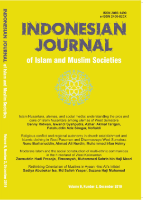
Indonesian Journal of Islam and Muslim Societies
Scope & Guideline
Illuminating insights into Muslim societies and their dynamics.
Introduction
Aims and Scopes
- Islamic Society and Culture:
The journal focuses on the dynamics of Islamic societies, examining cultural expressions, social practices, and community interactions within various Indonesian contexts. - Political and Social Movements:
It analyzes the role of Islam in political movements, sectarian conflicts, and social changes, particularly in relation to contemporary issues such as radicalism and reformism. - Islam and Modernity:
The journal investigates the intersections of Islamic thought with modern challenges, including secularism, urbanization, and globalization, reflecting on how these factors influence Muslim identities. - Islamic Education and Inclusivity:
There is a strong emphasis on educational practices within Muslim communities, particularly regarding inclusivity, disability rights, and the adaptation of Islamic teachings to contemporary needs. - Interfaith Relations and Pluralism:
The journal promotes discourse on interfaith dialogue, multiculturalism, and the coexistence of various religious groups within Indonesia, highlighting peace-building efforts and community collaborations.
Trending and Emerging
- Islamic Urbanism and Modern Lifestyles:
There is an increasing interest in how urbanization influences Islamic practices and spirituality, highlighting the adaptation of faith in metropolitan settings. - Digital Activism and Social Media:
The rise of social media as a platform for discussing Islamic values, including issues like polygamy and community engagement, reflects the journal's responsiveness to modern communication dynamics. - Youth Engagement and Philanthropy:
Recent focus on youth involvement in interfaith peace initiatives and philanthropy showcases a growing recognition of their role in shaping the future of Muslim societies. - Islamophobia and Sectarian Tensions:
The journal increasingly addresses themes of Islamophobia and sectarian issues, indicating a heightened awareness of the socio-political challenges faced by Muslim communities globally. - Inclusive Islamic Practices:
There is a notable trend towards exploring inclusive approaches within Islamic teachings, particularly concerning disability rights and gender equality, reflecting broader societal changes.
Declining or Waning
- Traditional Islamic Practices:
Papers focusing on strictly traditional practices and interpretations of Islam are less frequent, suggesting a move towards discussions that integrate modernity and contextual interpretations. - Historical Islamic Literature:
There has been a noticeable decline in the publication of studies centered solely on historical Islamic texts, indicating a shift towards contemporary applications and relevance of Islamic teachings. - Islamic Law and Jurisprudence:
Research specifically addressing classical Islamic jurisprudence without contemporary application appears to be waning, reflecting a broader interest in practical implications of Islamic law in modern contexts.
Similar Journals

Intellectual Discourse
Navigating the Intersection of Thought and SocietyIntellectual Discourse is a distinguished academic journal published by the International Islamic University Malaysia's Press Research Management Center. This journal, with an ISSN of 0128-4878 and E-ISSN of 2289-5639, serves as a vital platform for scholarly work in the fields of Philosophy, Sociology, and Political Science. Since its inception in 2011, it has strived to foster a multidisciplinary dialogue, blending theoretical insights with empirical research. Ranked Q2 in Philosophy and Q3 in Sociology and Political Science as of 2023, Intellectual Discourse is committed to advancing knowledge and understanding through rigorous analysis and innovative perspectives. Researchers and scholars can access its insightful publications to stay abreast of current trends and discussions that shape their fields. With an ongoing commitment to intellectual rigor, the journal positions itself as an essential resource for academics and students aiming to explore complex social phenomena and philosophical inquiries.
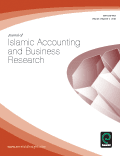
Journal of Islamic Accounting and Business Research
Transforming Business Strategies with Islamic Values.The Journal of Islamic Accounting and Business Research, published by EMERALD GROUP PUBLISHING LTD, is a leading academic journal dedicated to advancing the field of Islamic accounting and business practices. With its ISSN 1759-0817 and E-ISSN 1759-0825, this journal has established itself as a vital source of scholarly articles from 2010 to 2024, focusing on the integration of Islamic principles within contemporary business and accounting frameworks. Placed in varied quartiles across multiple categories in 2023—Q3 in Accounting and Strategy and Management, and Q2 in Business and International Management—this journal recognizes the dynamic intersection of Islamic economics and modern business theories. Situated in the United Kingdom, it plays a crucial role in supplying researchers, professionals, and students with cutting-edge insights and empirical findings, ensuring that it remains at the forefront of the discourse in its field. Furthermore, with impressive Scopus rankings, it stands out as a key resource for those seeking to explore the complexities and advancements in Islamic financial practices and business strategies.
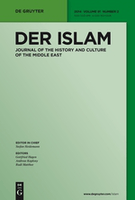
ISLAM-ZEITSCHRIFT FUR GESCHICHTE UND KULTUR DES ISLAMISCHEN ORIENTS
Chronicling the Evolution of Islamic Thought and CultureISLAM-ZEITSCHRIFT FUR GESCHICHTE UND KULTUR DES ISLAMISCHEN ORIENTS, with ISSN 0021-1818 and E-ISSN 1613-0928, is a prestigious academic journal published by Walter de Gruyter GmbH based in Germany. With a rich history dating back to 1910 and a dedicated focus on the cultural and historical insights of the Islamic Orient, this journal serves as a vital platform for scholars around the globe. It is recognized in the Q2 quartile in both Cultural Studies and History, reflecting its high-impact contributions to the field. The journal features rigorous peer-reviewed articles, making significant advancements in understanding Islamic culture and history. Notably, it holds commendable Scopus Ranks, placing it in the top 65th percentile for History and the 53rd percentile for Cultural Studies. Researchers, professionals, and students interested in the complexities of Islamic heritage will find this journal indispensable for its depth of analysis and breadth of scholarship. While it currently does not offer Open Access, its comprehensive resources are crucial for academic research in these historically rich fields.

Hawwa
Illuminating Cultural Contexts Through Gender Studies.Hawwa is a distinguished academic journal published by BRILL, focusing on the intersections of culture, gender, and society. Established in the Netherlands, this journal has been a crucial platform for scholarly discourse since its inception in 2003. With an ISSN of 1569-2078 and an E-ISSN of 1569-2086, it serves as a vital resource for researchers and students alike, exploring the complexities of gender dynamics within various cultural contexts. In the rapidly evolving fields of Cultural Studies, Gender Studies, and Sociology and Political Science, Hawwa has achieved significant recognition, reflected in its 2023 Quartile Rankings (Q2 in Cultural Studies, Q3 in both Gender Studies and Sociology/Political Science) and commendable positions in the Scopus rankings. Although not an open-access journal, Hawwa maintains a commitment to fostering academic excellence and interdisciplinary dialogue, making it an essential read for those engaged in contemporary social theory and cultural analysis.
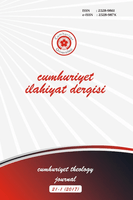
Cumhuriyet Ilahiyat Dergisi-Cumhuriyet Theology Journal
Fostering Critical Dialogue in the Academic Sphere.Cumhuriyet Ilahiyat Dergisi-Cumhuriyet Theology Journal is a distinguished peer-reviewed publication under the auspices of Cumhuriyet University, Faculty of Theology, based in Turkey. With an ISSN of 2528-9861 and an E-ISSN of 2528-987X, this open-access journal has been committed to advancing the scholarly discourse in the fields of Philosophy and Religious Studies since its inception in 2016. As part of a rapidly evolving academic landscape, the journal has achieved notable rankings, including Q3 in both Philosophy and Religious Studies, and Q4 in Social Sciences (miscellaneous) for 2023, indicating a growing impact in these disciplines. The journal aims to foster innovative research and critical dialogue, making it an essential resource for researchers, professionals, and students alike. With open access options, it ensures a wide dissemination of knowledge, amplifying the voices of scholars from diverse backgrounds and contributing significantly to the global academic community.

Al-Shajarah
Illuminating the Intersection of History, Philosophy, and IslamAl-Shajarah is an esteemed academic journal that serves as a vital platform for scholarly discourse in the fields of Cultural Studies, History, Philosophy, and Religious Studies. Published by the International Islamic University Malaysia and the International Institute of Islamic Thought and Civilization, the journal reflects a profound commitment to advancing understanding and dialogue surrounding Islamic thought and its place in modern society. With an ISSN of 1394-6870 and an evolving publication history since its convergence in 2011, Al-Shajarah offers valuable insights that cater to a broad array of readers, from seasoned researchers to emerging academics. The journal's rigorous peer-review process and commitment to cultural and religious scholarship are underscored by its categorization in the Q3 and Q4 quartiles in critical academic fields, and its Scopus rankings demonstrate its relevance within the global academic landscape. While open access is not currently available, Al-Shajarah remains a crucial resource for those seeking to enrich their understanding of Islamic civilizations and philosophy, providing access to pioneering research that shapes the conversation within these disciplines.
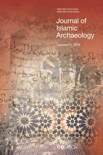
Journal of Islamic Archaeology
Unearthing the Secrets of Islamic SocietiesJournal of Islamic Archaeology is a distinguished publication dedicated to advancing the field of archaeology through the lens of Islamic heritage and culture. Published by EQUINOX PUBLISHING LTD, this journal provides a platform for researchers, professionals, and students to disseminate their findings and engage in critical dialogue regarding the archaeological aspects of Islamic societies from 2014 to the present. With an ISSN of 2051-9710 and E-ISSN 2051-9729, the journal is indexed within significant academic databases and positioned notably in the Q3 and Q2 quartiles for archaeology in the Arts and Humanities and Social Sciences categories, respectively. The journal fosters scholarly exchange and innovation, drawing attention to the rich tapestry of Islamic archaeology, and securing its role as an essential resource for practitioners and academics alike. Its commitment to rigorous peer-review and high-quality contributions ensures a valuable repository of knowledge, enhancing the understanding of an often underrepresented field in archaeology.
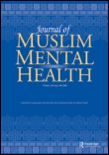
Journal of Muslim Mental Health
Bridging Faith and Psychology for Holistic Well-BeingJournal of Muslim Mental Health, an esteemed publication by MICHIGAN PUBLISHING, focuses on the intersection of mental health and Islamic perspectives. With an ISSN of 1556-4908 and an E-ISSN of 1556-5009, this journal has been championing open access since 2011, ensuring that valuable research is accessible to all. Covering a broad scope from 2007 to 2024, the journal has carved its niche within the fields of Clinical Psychology, Health (Social Science), Psychiatry, and Religious Studies, earning a Q3 ranking in both Clinical Psychology and Health, and a notable Q1 status in Religious Studies as of 2023. The Scopus Ranks indicate its growing influence, highlighted by its rankings in various categories. Whether you are a researcher, professional, or student, the Journal of Muslim Mental Health provides crucial insights and fosters dialogue on the mental health issues faced by Muslim communities, contributing significantly to both academic discourse and practical applications in mental health practices.
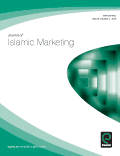
Journal of Islamic Marketing
Transforming Marketing Through a Cultural LensJournal of Islamic Marketing, published by Emerald Group Publishing Ltd, is a prominent peer-reviewed journal dedicated to the exploration and advancement of marketing practices within the Islamic context. Since its inception in 2010, the journal has effectively contributed to the intersection of marketing, business, and cultural studies, and has established itself as a valuable resource for researchers and professionals alike. With an impressive 2023 Scopus ranking in the top 24% (Q2) among 210 journals in the Marketing category and a percentile ranking of 76th, it showcases high-impact research that addresses contemporary challenges in Islamic marketing. The journal aims to publish innovative research that not only enhances theoretical understanding but also offers practical insights into how Islamic principles can shape marketing strategies. The Journal of Islamic Marketing serves as a critical outlet for those seeking to delve deeper into this dynamic field, making it an essential read for anyone involved in marketing, business management, or cultural studies.

Nazariyat-Journal for the History of Islamic Philosophy and Sciences
Advancing Knowledge in Islamic Philosophy and SciencesNazariyat-Journal for the History of Islamic Philosophy and Sciences, published by SCIENTIFIC STUDIES ASSOCIATION, is a leading academic journal dedicated to the exploration and dissemination of research in the history of Islamic philosophy and sciences. With an ISSN of 2528-8563 and E-ISSN 2547-9415, this journal has adopted an Open Access model since 2014, ensuring that valuable insights and scholarly work are readily available to a global audience. Situated in Istanbul, Turkiye, the journal serves as a vital platform for researchers, students, and professionals seeking to deepen their understanding of the rich intellectual traditions of Islamic thought. Although the HIndex is currently unavailable, the journal is committed to upholding rigorous academic standards while encouraging interdisciplinary dialogue. By bridging historical examination with contemporary relevance, Nazariyat plays an essential role in fostering a nuanced appreciation of Islamic intellectual heritage within the broader scientific community.